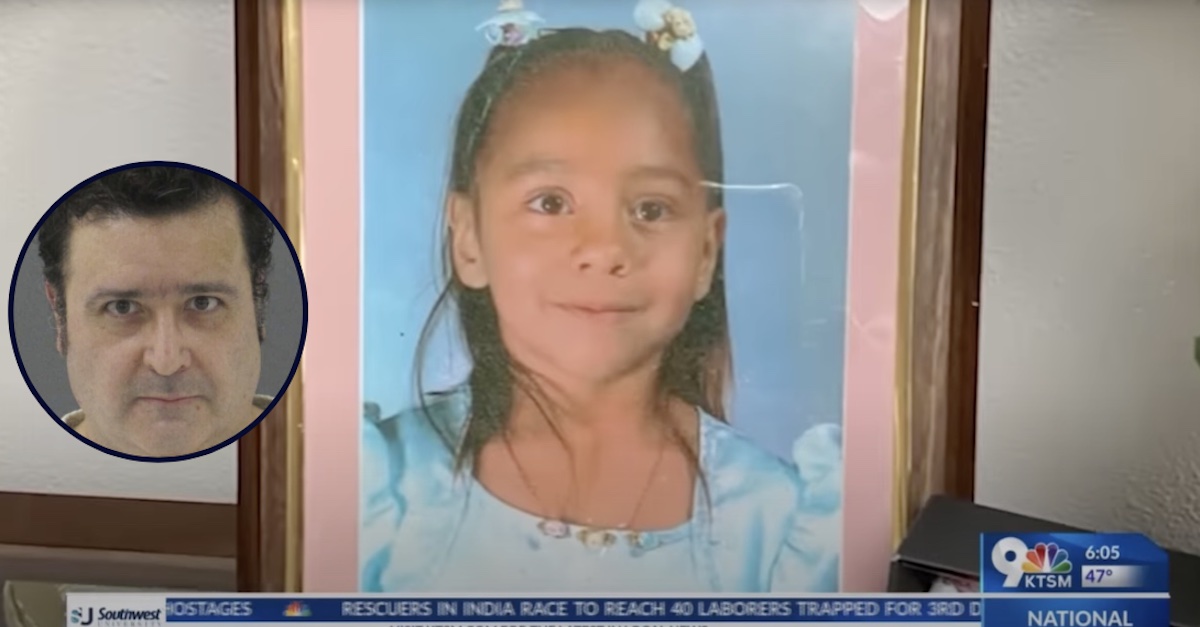A Texas death row inmate who was convicted of strangling 5-year-old Alexandra Flores and burning the victim’s body, this after abducting the child from a Walmart in El Paso as she shopped for Christmas with her family in 2001, was executed by lethal injection on Thursday night.
The time of 53-year-old David Renteria’s death by pentobarbital injection was 7:11 p.m., and the murderer’s execution moved forward after the U.S. Supreme Court declined to take up his last-ditch appeal.
In his last words, the Associated Press reported, Renteria apologized for “all the wrongs I have done,” telling Alexandra Flores’ family members that “[t]here is not a day that goes by that I do not think about the fateful events of that day and what transpired.”
“There are no words to describe what you’re going through, and I understand that,” he reportedly said.
At the same time, Renteria reportedly claimed to “forgive” those “who have called for my death, who are about to murder me[.]”
It took 11 minutes for the pentobarbital injection to kill him.
Alexandra Flores’ siblings Ignacio Frausto and Sandra Frausto witnessed the execution. Ignacio reportedly said through tears, “I want to recognize her, not forget about her.”
“It took 22 years but the time came. It is done. We can finally and really begin to heal — 22 years of wondering what was going to happen,” he added.
The Nov. 16 execution was carried out almost 22 years to the day that Renteria murdered Flores: Nov. 18, 2001.

David Renteria (left inset) in a Texas Department of Criminal Justice mug shot, (right) Alexandra Flores (KTSM/YouTube screengrab)
Renteria had attempted to halt the execution in a petition for a writ of certiorari to the U.S. Supreme Court, raising an Eighth Amendment argument against “cruel and unusual punishments.” In the petition, the death row inmate’s attorneys focused on the method of execution and asked the high court to answer two questions:
1. Does a State deprive a person of life without due process of law when it delegates to its executioner unchecked discretion to ignore a state law prohibiting torture, ill treatment, or unnecessary pain, and permits him to inject prisoners with non-lethal substances in violation of a state law authorizing him to use only lethal substances in sufficient quantity to cause death?
2. Does uncontroverted evidence that an executioner is acting outside his lawful authority, or wantonly and unnecessarily, in a manner that causes terror and a risk of severe pain demonstrate that the executioner has superadded terror or pain to the execution process?
The Supreme Court declined to answer those questions, sealing Renteria’s fate.
We want Law&Crime to be your favorite destination for all things true crime
To continue bringing you the very best content, we rely on valuable feedback from our loyal viewers. We invite you to take a brief survey about the kind of programming you want to see more of from us. Participation is anonymous and will only take about 3 minutes.
Have a tip we should know? [email protected]

